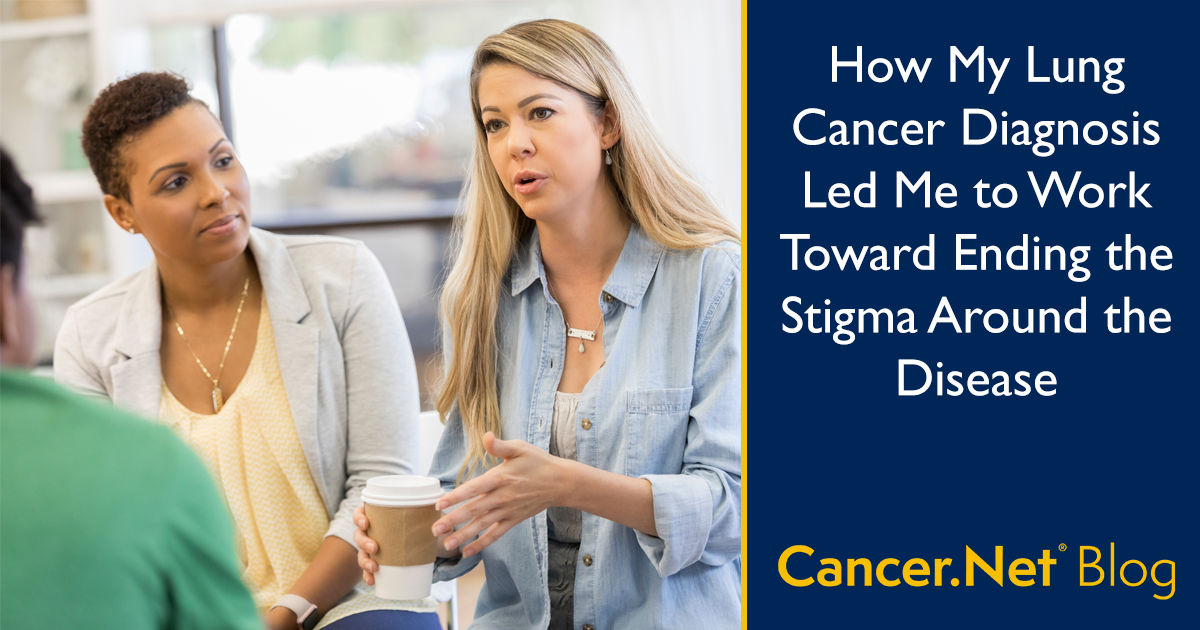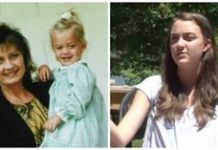
This post was first published on The ASCO Post, March 10, 2023. It has been edited for content. The ASCO Post, in partnership with the American Society of Clinical Oncology (ASCO), communicates news of evidence-based multidisciplinary cancer care to a broad audience of oncology professionals and ASCO members.
Lindi Campbell is a lung cancer survivor living in Lexington, Kentucky. She is the founder of Breath of Hope Kentucky, a nonprofit organization aiming to raise awareness and erase the stigma associated with lung cancer.
Ironically, I received a diagnosis of lung cancer when I was feeling my healthiest. In December 2015, when I was just 51 years old, a routine chest x-ray found a small shadow on the lower lobe of my right lung. Despite being a never-smoker, a regular exerciser, and a healthy eater, my primary care physician suggested I have a computed tomography (CT) scan to get a more precise assessment of the shadow on my lung. The test showed the shadow was a 1.2-centimeter (cm) nodule, and my physician suggested a wait-and-watch approach to see whether the mass grew over time. When it reached 2.4 cm, my physician decided to do a biopsy of the nodule to determine whether it might be cancer.
To my great relief, the analysis of the biopsy could find no signs of cancer. However, over the next few months, the mass continued to grow, and my doctor advised removing the nodule. Still, I was not worried that I could have cancer; after all, I reasoned, I have never used tobacco products and led a healthy lifestyle. I would quickly learn that these factors are no guarantee against developing cancer.
Receiving a diagnosis of stage IV lung cancer
In December 2017, I was scheduled to have a surgery to remove the still unidentified mass as well as several surrounding lymph nodes. However, when the examination of the tumor tissue removed during the surgery found that I did, in fact, have lung cancer, I woke up to learn that my surgeon had also removed 2 lobes of my right lung. Fortunately, my lymph nodes were clear of cancer, and I was diagnosed with stage I adenosquamous carcinoma, a rare subtype of non-small cell lung cancer (NSCLC).
My oncologist recommended periodic imaging scans to watch for any cancer recurrence, and over the next 18 months, I appeared to be cancer-free. But then, in early 2020, several small nodules began appearing in my left lung, and in May, surgical removal of the tumor tissue found that it, too, was NSCLC. Now, the cancer was stage IV, and I was in a more precarious medical situation.
After receiving the diagnosis, I received tumor genomic profiling, also called tumor marker testing, which found that my cancer harbored the epidermal growth factor receptor (EGFR) exon 19 deletion gene mutation. Fortunately, in December 2020, improved survival results from the ADAURA clinical trial, which was investigating the targeted therapy drug osimertinib (Tagrisso) in people with NSCLC with EGFR exon 19 deletions, led the U.S. Food and Drug Administration (FDA) to approve osimertinib for treatment after surgery in people with my type of cancer. I’ve been on osimertinib for nearly 2 and a half years now, and my cancer has not recurred.
Making a difference
Lung cancer, regardless of the cause of its development, can carry significant stigma, often leading to delayed diagnosis and feelings of shame and loneliness. When I was diagnosed, I realized I could be a voice for other lung cancer survivors and began to advocate for patients’ rights and for increased funding for this serious cancer.
My home state of Kentucky has both the highest incidence rate and mortality rate of lung cancer in the country, according to the American Lung Association. Nationwide, lung cancer is the second most common cancer in both men and women. This year, the American Cancer Society estimates that about 238,340 new cases of lung cancer will be diagnosed in the United States and that 127,070 people will die of the disease.
After learning more about lung cancer, I knew that I had to do something to help change these statistics and improve the lives of people diagnosed with the disease. So, in 2019, I launched Breath of Hope Kentucky to raise awareness about lung cancer in my state and help erase the stigma of the disease as well as reduce mortality and improve outcomes for patients. We are making a difference, one conversation at a time, and have raised more than $134,000 for research.
Finding a new life purpose
Sometimes, we don’t really start living until mortality is staring us in the face. Becoming an advocate for other lung cancer survivors has given me a newfound life purpose. Every day, I take all the negative aspects of having cancer and turn them into positive good works. Cancer has given me more than it has taken away, including a tireless effort to fight for others diagnosed with this disease.
I am very grateful for my good health at this moment and have hope for my future as well as for the futures of other survivors. I know there is important research going on to find more effective treatments for lung cancer and am grateful to the researchers working in this field. I’ll continue to do my part to end the stigma surrounding lung cancer and help generate change in the dire statistics of this disease, not just in my state but nationwide as well.








